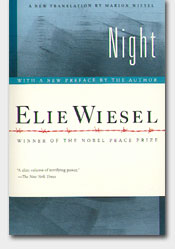It was around 7 in the morning of December 30, 1896 at Bagumbayan, Manila when a Filipino named Jose Rizal died under the hands (or in this case, guns) of the Spanish soldiers. A death that opened the eyes of the Filipinos that rose to the Philippine Revolution which made the Spaniards flee the country of our mothers.
I decided to write this to commemorate the Philippines' National Hero, Dr. Jose P. Rizal, for today is his death anniversary (I'm on the other side of the world, so technically I'm 14 hours behind, and right now, as I publish this post, it's midnight over there, the 31st of December. A day late but early for the first day of the coming year. But whatever. At least I remembered him. And also, I get to remind myself of his heroic acts and his inspiring works.). He was considered our National Hero through his unselfish heroic acts and pacifist ways of approaching the enemy. Publishing his works which were mostly poems, he was able to reach out to his fellowmen which motivated them to fight for their freedom. And he's a damn good writer, I must say, for I've read some of them (not in Spanish, in Tagalog, but all his works are in Spanish), and he's pretty smart for someone who graduated at an early age.
But most probably his best works are his two novels, Noli Me Tangere (Touch Me Not/ Huwag Mo Kong Salangin) and El Filibusterismo (The Reign of Greed/ Ang Pilibustero), which instigated the Katipunan (an association of anti-Spanish Filipino revolutionists) to attack the Spaniards. He had other literary works as well, poems and sayings that he wrote since he was a kid, which all speaks nationalism and patriotism. I have read both novels for we studied them in junior and senior year in high school (a curriculum requirement), and I think that Noli (here's a good background) is better than El Fili for the latter is too dark for Rizal's taste, unlike Noli which has hints of romance.
You can also watch the movie Jose Rizal (highly recommended, I must say) that was released in 1998 if you really want to know more about his history. Either you can buy it or watch it online, but if you did like it (and I really hope you would), you can just buy it for it really is worth every penny.
You can also watch the movie Jose Rizal (highly recommended, I must say) that was released in 1998 if you really want to know more about his history. Either you can buy it or watch it online, but if you did like it (and I really hope you would), you can just buy it for it really is worth every penny.
Alright, I'm not showing this to the world to let them know how Spain conquered and molested my country for 333 years. It was the past, a part of history, and I completely understand that. Heck, I don't think Filipinos still have these repressed feelings against all the conquerors of our Motherland. There's no bitterness anymore, just the sheer pride that we have for our forefathers who protected us and the archipelago that stands today. I know that there are also some ordinary and unrecognized Filipinos who serve the country in their own ways that would surely make Rizal proud. Sacrificing their blood, tears, and sweat, just for the sake of their homeland. Wonderful, isn't it? Well, I just hope that some of our leaders would get the hint.
A/N: These are facts, I tell you. A part of the Philippine history. I'm just not sure (more like accurate) on some of the information. For example, I'm not really sure (okay, I forgot) if it was because of El Fili and Noli that started the Katipunan. It might have been before that. These Filipinos were violent and have a thirst for blood. Nah, just kidding. I respect them a lot, just so you know. It's just that my brain's a bit rusty; I haven't studied Philippine history for years (not that long though, at least I remember some things).
Also, the title post is inspired from his last poem, Mi Ultimo Adios (My Last Farewell), his last literary piece written the night before he was killed.
A/N: These are facts, I tell you. A part of the Philippine history. I'm just not sure (more like accurate) on some of the information. For example, I'm not really sure (okay, I forgot) if it was because of El Fili and Noli that started the Katipunan. It might have been before that. These Filipinos were violent and have a thirst for blood. Nah, just kidding. I respect them a lot, just so you know. It's just that my brain's a bit rusty; I haven't studied Philippine history for years (not that long though, at least I remember some things).
Also, the title post is inspired from his last poem, Mi Ultimo Adios (My Last Farewell), his last literary piece written the night before he was killed.
















